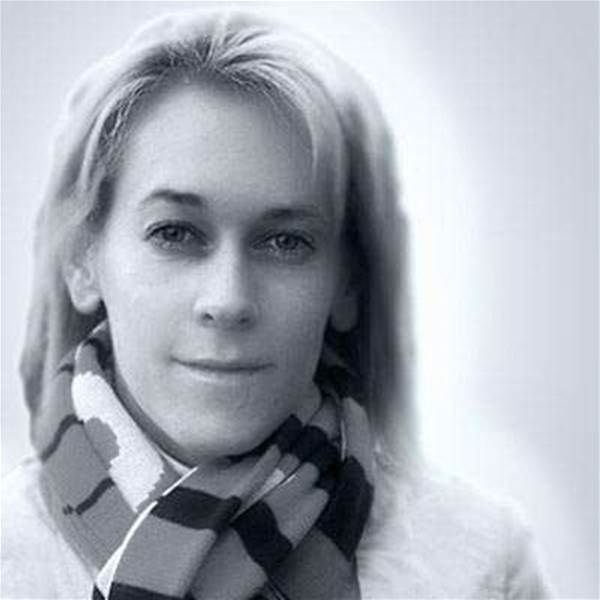ONE 6-0 drubbing is an anomaly. Two in one weekend is bizarre.
And all three occurring in two consecutive weeks across two different football competitions highlights how on-field actions speak louder than words.
I should preface this blog with the disclaimer that I am not - nor have I ever been - anti-Gold Coast. What has galled me is the overwhelming off-pitch bollocks and bluster. Gold Coast United have never been about the football or the fans. They've been about - no pun intended - big personalities throwing their words and weight around.
They might have the best team in the league, but let them prove that on the pitch. They might have the richest owner in the league, but is that what's most important? They might have the most outspoken, malapropism-spouting coach, but can he get results? And even if they do get results, do you want to get behind the team?
Which brings me to the W-League. Operating in stark contrast to billionaire Clive Palmer's team, which is ferried around in his private jet, the W-League is achieving as much - indeed, more - than the Gold Coast.
You want to talk about going through seasons undefeated? You want to talk about crowd numbers? Having conceded just one goal in five rounds, season one champions and firm favourites to take out season two, Roar Women have not only not lost a game, they have the best defensive record in the league.
They issued Perth Glory Women a solid, three-goals-in-each-half 6-0 drubbing on Saturday in front of a crowd even smaller than usual due to an unforeseen last-minute game time change. Not to be outdone, Sydney FC Women matched the 6-0 score line against Adelaide and, with five goals scored in total across the other two W-League fixtures, helped round five finish with an unprecedented and entertaining 17 goals.
What's refreshing is that the round five match outcome focus remains on the football and the players. It's not about owners or coaches. It's not about crowd numbers. It's certainly not about money. Indeed, most W-League players aren't getting paid to play at all and the whole league is operating on the smell of a sweaty football sock.
Sure, there are financial imperatives that must be addressed, but are we forced to hear about the W-League's money and crowd concerns? Hell no. And they're getting results that Palmer and Miron Bleiberg could only dream of.
Requiring just a ball and a goal delineation, football is one of the world's most affordable sports. Children whose parents can't afford shoes grow up playing it on the streets. For the last seven years the Homeless World Cup has used it to help homeless and marginalised people change their lives.
Yes, there are players who are paid vast sums of money, but football isn't about how much money you can throw at it, nor about how much you can save by capping crowd numbers. The beauty of the game and the passion it inspires are what keep players and fans riveted.
They say Palmer's a savvy businessman, but his money has been made through providing a sought-after resource. The fact that demand outstrips supply means that he's able to play hardball to get the price he wants for it. It's quantifiable, it's tangible, and iron ore doesn't inspire or require emotional investment.
Football, however, is intangible, emotive, and cannot be captured by or confined to a spreadsheet. It's an emerging sport in Australia and the demand is not yet outstripping the supply. Of course no one wants to see a club go under, but nor does anyone want to see the inner workings - the dirty-laundry, magic-spoiling political and financial facts. And they certainly don't want to see such dire issues raised and such drastic actions taken less than half way into the club's inaugural season.
Which is precisely where the W-League is getting it right. It's keeping the focus firmly not on the financials but on the football. While any mention of Gold Coast United conjures up images of Palmer and Bleiberg and their latest, controversial, headline-grabbing over-the-top-ness, any mention of the W-League conjures up images of women playing football. I'd challenge anyone to identify the W-League club owners or management or whether they're on track financially or in terms of crowd numbers.
And that's exactly the way it should be.
W-League crowd numbers are small. Smaller than the average A-League crowd. Indeed, they're even smaller than the Gold Coast's less-than-3000 ‘ghost town' showing against North Queensland. But their management is hardly throwing their hands in the air and capping numbers until they can sell out the grounds. Instead they're developing long-term support through the use of social networks such as Facebook.
They're actively seeking out, contacting, and offering free, come-and-see tickets to female footballers. Their ‘football with style' marketing message perfectly balances athleticism and excitement with fashion and entertainment. The focus has been on the W-League rather than just one ‘glamour' team. And the small-change ticket prices are gobsmackingly cheap.
Their efforts are paying off. Unlike Palmer's short-term financial gain, which will cause him both short - and long - term pain, the W-League's crowd numbers are increasing. Football is now the fastest growing women's sport in Australia.
The ABC-broadcast matches have been out-rating the pay-TV A-League ones. Fans themselves are driving the W-League promotion and community development on Facebook. And people who are turning up to the games, whether on free tickets or through word-of-mouth recommendations, are being converted to fans by the sheer entertainment of talented women playing good football.
Indeed, if the W-League is showing us anything, it's that football is about more than money and that on-field actions speak louder than off-field bollocks and words. Gold Coast would do well to examine the W-League's how-to-develop-grassroots-support-in-your-inaugural-season book unless they want to continue to throw good money after bad.












